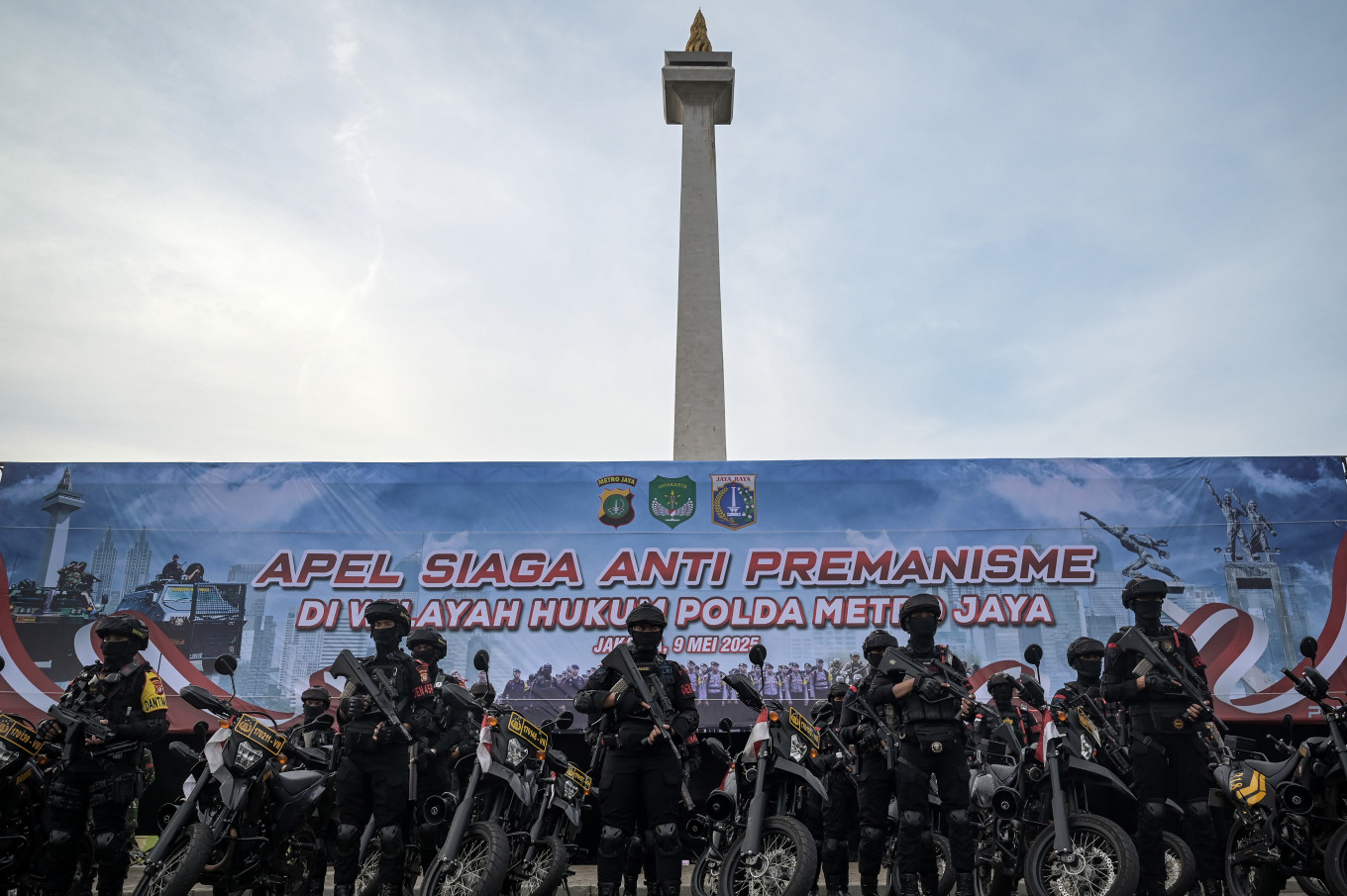Popular Reads
Top Results
Can't find what you're looking for?
View all search resultsPopular Reads
Top Results
Can't find what you're looking for?
View all search resultsThe hidden tariff
Other countries have tackled racketeering through a combination of targeted asset seizures, witness protection, whistleblower incentives and cross-agency coordination.
Change text size
Gift Premium Articles
to Anyone
I
ndonesia’s ambition to attract world-class investment is being quietly sabotaged, not by interest rates or the threat of United States trade tariffs, but by the familiar menace of thuggery and extortion.
From street-level rackets to entrenched mafia control of parking, freight and food markets, criminal coercion continues to drain business confidence, inflate costs and corrode the very rule of law that investors depend on.
This week’s viral incident of “rogue elements” within the Indonesian Chamber of Commerce and Industry (Kadin) demanding project cuts from a state-owned project worth trillions of rupiah is a stark reminder that extortion is not confined to dark alleys and backroom deals.
Kadin chairman Anindya Bakrie unwittingly acknowledged that even respectable institutions are vulnerable to being coopted by individuals abusing access to influence procurement, shaking down entrepreneurs and taking “fees” for permits that are supposed to be free. The Cilegon chapter of Kadin initially brushed off the allegations as a "slip of the tongue", but the damage was already done.
Whether or not the accusations stick, the sentiment among business owners and investors is clear. Indonesia bears the cost of a hidden tariff, an unofficial but deeply embedded system of rent-seeking that thrives where law enforcement is inconsistent, local governance is fragmented and political power shields impunity.
President Prabowo Subianto, to his credit, has distanced himself from the paramilitary groups that cost him previous elections and even ordered authorities to crack down on premanisme, or thuggery, with thousands of cases of illegal levies and intimidation tactics reportedly addressed. But dismantling an ecosystem of coercion requires more than policing. It demands a structural response that targets the incentives behind the crime, access to economic chokepoints, weak oversight over local permits and a culture of silence among businesses.
Public discourse and a growing body of academic commentary on the matter underscores how deeply entrenched preman-style operations are in local culture. Historian JJ Rizal drew parallels between how local strongmen offered “protection” in exchange for tribute, reaching far back into the nation’s colonial history, while geopolitical analysts point to the way global powers today use economic tools like tariffs in strikingly similar fashion.
Just as the US tariff war with China and others with a trade surplus has been described as a modern-day protection racket, so too is Indonesia's extortion economy a form of domestic protectionism, one that forces local businesses and unassuming investors to “pay to play”.
The net result is chilling. Small and medium enterprises (SMEs), especially those in logistics, construction and informal markets, often find themselves caught between complying with extortion demands or facing harassment and disruption.
Foreign investors, meanwhile, are left wondering if Indonesia's investment climate is as safe as its macroeconomic indicators might suggest. In the long term, this fear deters innovation and stunts inclusive growth.
The solutions are not mysterious. Other countries have tackled racketeering through a combination of targeted asset seizures, witness protection, whistleblower incentives and cross-agency coordination.
Jakarta has shown this is possible with past crackdowns on illegal parking syndicates. What is needed now is the political will to apply these measures nationwide and the institutional discipline to insulate law enforcement and public administration from interference.
Just as tariffs distort global trade by arbitrarily raising costs and disrupting markets, thuggery and rent-seeking do the same within national borders. In both cases, the losers are honest businesses and the broader public.
If Indonesia is serious about joining the ranks of high-income economies, it must dismantle this shadow tax on ambition. Transparency, rule of law and a zero-tolerance policy toward criminal influence are not luxuries, they are prerequisites for sustainable growth.
The litmus test of reform lies not in the drafting of pro-business laws or the hosting of international summits, but in ensuring that a mom-and-pop shop in Medan, a factory in Surakarta or a port operator in Makassar can do business without fear.
Until then, Indonesia will remain burdened by a tariff far more corrosive than anything imposed from abroad.











